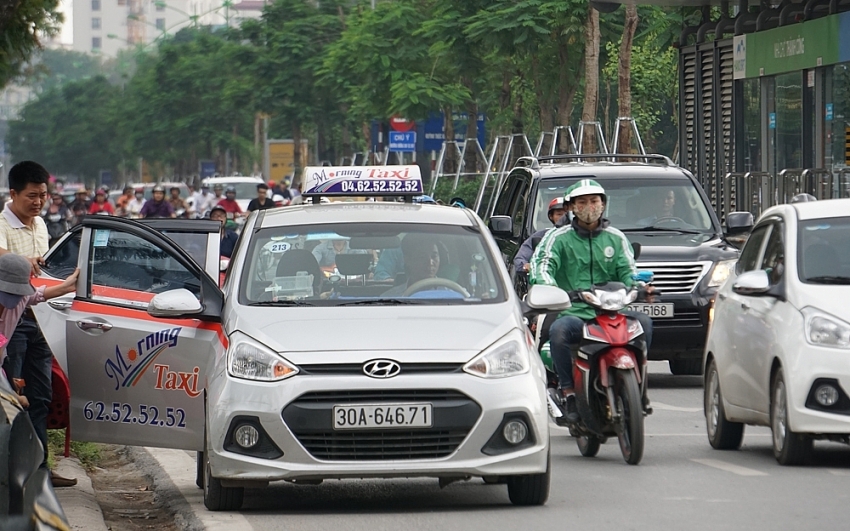Traditional taxi operators looking to switch to electronic contracts
 |
| Traditional taxi operators are vying for the advantages their ride-hailing rivals are enjoying |
The Hanoi Taxi Association has submitted the two documents to the authorities to seek to provide ride-hailing services for cars under nine seats to enjoy tax benefits. According to the association, the implementation of Decision No.24/QD-BGTVT on the pilot scheme for ride-hailing services in the past three years caused unfair competition with technology firms in terms of tax obligations and the insurance policy for drivers.
Besides, the draft decrees to replace Decree No.86/2014/ND-CP setting out conditions for the transportation business laid out plans to manage ride-hailing vehicles under nine seats via electronic contracts that drew widescale approval. These electronic contracts offer massive incentives to tech firms which are not available for traditional taxi operators.
For example, Grab pays 2 per cent corporate income tax on its revenue, while taxi firms pay up to 25 per cent of their profit. Besides, ride-hailing vehicles can operate on numerous inner-city streets which are banned for traditional taxis at peak hours. Furthermore, traditional taxi operators have to sign labour contracts and pay insurance after their drivers.
Along the proposal to switch the operation model, the association also asked the authorities to guide traditional taxi operators on means to change their operation model.
Most recently, the prime minister has asked the MoT to reconsider its requirement for ride-hailing cars under nine seats to install a light box on top, as well as other unnecessary business conditions for ride-hailing vehicles under nine seats.
According to the prime minister, information technology should be used to manage the transport network, instead of brute-forcing traditional management methods.
Previously, the MoT has included this proposal in its numerous reiterations of the draft decrees to replace Decree No.86/2014/ND-CP setting out conditions for the transportation business. The latest draft decree was submitted last month.
The MoT said the installation of such boxes for app-based ride-hailing vehicles would enable the better management of transport businesses, help customers identify ride-hailing cars on the street, and differentiate between a transport service provider and a supplier of other services.
It would also prevent private vehicles from providing transport services illegally, causing difficulties for traffic police in inspecting, controlling, and organising urban traffic, the ministry argued.
What the stars mean:
★ Poor ★ ★ Promising ★★★ Good ★★★★ Very good ★★★★★ Exceptional
Themes: Ride-hailing services
Related Contents
Latest News
More News
- VinaCapital launches Vietnam's first two strategic-beta ETFs (February 26, 2026 | 09:00)
- PM sets five key tasks to accelerate sci-tech development (February 26, 2026 | 08:00)
- PM outlines new tasks for healthcare sector (February 25, 2026 | 16:00)
- Citi report finds global trade transformed by tariffs and AI (February 25, 2026 | 10:49)
- Vietnam sets ambitious dairy growth targets (February 24, 2026 | 18:00)
- Vietnam, New Zealand seek level-up in ties (February 19, 2026 | 18:06)
- Untapped potential in relations with Indonesia (February 19, 2026 | 17:56)
- German strengths match Vietnamese aspirations (February 19, 2026 | 17:40)
- Vietnam’s pivotal year for advancing sustainability (February 19, 2026 | 08:44)
- Strengthening the core role of industry and trade (February 19, 2026 | 08:35)

 Tag:
Tag:






















 Mobile Version
Mobile Version